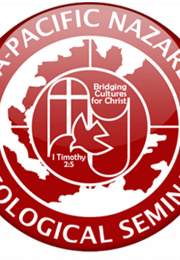- Resource Types
- Resource Languages
- Institutional Repository
About Site Language
WHDL is viewable in multiple languages. Use the pull-down menu to select a language to view the site.
I changed my language, but I’m still seeing resources in the other languages?
If a resource or text has not been translated into your selected language, it will appear in the initially added language. We are always looking for help translating these resources. If you can help, contact us!
WHDL - 00013186


This thesis explores the self-liberation concept of Theravada Buddhism, with the hope that it can provide a foundation towards a dialogical exchange between Buddhists and Christians in Myanmar. To provide a better understanding of the context, the thesis offers a brief historical background of Buddhist-Christian relations in Myanmar. By mainly relying on the translation of the Pali Tipitaka, along with a number of secondary sources from prominent Buddhist scholars, the self-liberation concept of Theravada Buddhism is discussed, beginning with the personal experience of Gotama, the Buddha. The thesis is descriptive in nature. The research employs a basic qualitative method, integrated with the analytical and interpretive methods. Correlation and synthesis were done and are presented in the final chapter with an emphasis on implications for interfaith dialogue. The study produced some significant findings. Firstly, it discovered the true nature of self-liberation in Theravada Burmese Buddhism. It is neither focused on meritmaking nor ritual performances. Rather, it is the attempt to fulfill the requirements for self-liberation in seeing all things as they are, which destroys all the defilements from one’s mind to become an Arahant, a perfect one. Secondly, despite the differences in the means towards liberation between Christianity and Buddhism, and the seeming impossibility for a common ground to begin theological dialogue, there are common doctrinal grounds as well as practical implications that will not only allow us to appreciate each other’s religions, but also share our divergences respectfully. Thirdly, it discovers the possibility of Buddhist-Christian dialogue concerning liberation through shared experiences as a means to make our dialogue clearer. Overall, it uncovers relevant and feasible ways to bring peace and make dialogue possible in the context of BuddhistChristian dialogue through soteriological engagement.
5 Resources
This collection contains the theses of our graduates that fulfilled the degree of Master of Science in Theology
2016
1901
2004
n.d.
1899
1929
1944
1945
1899
2013
2018
1982